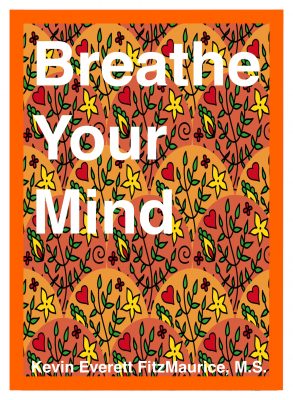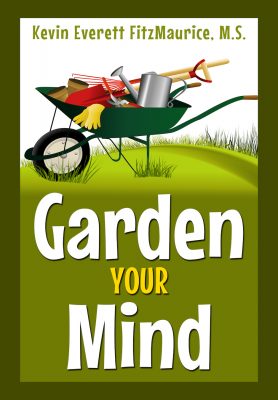Release Old Baggage Into Drum Sounds
- Garden will teach you an easy and effective Cognitive Behavioral Therapy (CBT & REBT) system.
Drink Drums is an experimental practice designed for drum circles to help people release old baggage they are ready to let go of.
- Read and discover the best calming and centering exercise for public and private.
Drink Drums: Purpose of Exercise
- Claim four options for dealing with old baggage so you can live lighter now.
- Your future responses to any thoughts about the old baggage should be from one of the following four options.
Drink Drums: Option 1 for Exercise
- Drink Drums: Surrender the baggage to God or your Higher Power.
- The first option is to turn the baggage over to God.
- The first option is to surrender the baggage to God.
- The first option is to stop trying to change, control, or stop the baggage by giving all the work of dealing with the baggage to God.
- “Let go and let God.” “Turn it over.” “Surrender.” “Stop trying.” “Practice non-doing.”
Drink Drums: Option 2 for Exercise
- Drink Drums: Consider the baggage unworthy of your time and attention.
- The second option is to switch the channel.
- Just like you switch the channel on your TV or radio, you can switch the channel for your mind or thinking.
- Just as you choose not to spend time talking with people you do not like or have any interest in, you can choose not to spend time in your mind talking with thoughts that you do not like or have any interest in.
- Spend your time on the good, not the foolish. Switch from the nonsense.
Drink Drums: Option 3 for Exercise
- Stop feeding the unwanted dialogue or conversation with words or responses.
- The third option is to hear out the baggage without talking back
- The third option is to meditate out the baggage by paying attention to it without responding to it in any way.
- Follow it out. Listen until it dies down.
Drink Drums: Option 4 for Exercise
- Dialogue or converse with the baggage using experiences of drumming instead of words.
- The fourth option is to change from any verbal response to baggage to an experiential response such as bodily awareness.
- In this case and for the purposes of this experiment, the experience to use is the experience of drumming or hearing drumming.
- When you reply with experiences of drumming to thoughts about some issue, it will short-circuit the conversation so that it ends without incident.
Drink Drums: Old Baggage
- Old baggage is one old issue that you are tired of thinking about.
- Keep your old baggage private. No one needs to know what it is.
- Old baggage is not an issue that you are working on with some professional such as a counselor or psychotherapist.
- Old baggage is not an issue that you are not yet completely sick and tired of.
- Old baggage is not a new issue, an abuse issue, or an emotionally painful issue.
- Read and discover the best calming and centering exercise for public and private.
Drink Drums: Inner Circle
- Adults who choose to knowingly and willingly participate in this experiment are to gather and form an inner circle in the middle of the main circle.
- They then face each other and hold hands.
- These participants do not play drums or musical instruments while in the inner circle.
- Pick something that you want to stop thinking about.
- Strongly feel your intention to stop thinking about it.
- Scream or yell your frustration with your old baggage into the drumming of the outer circle.
- Scream or yell softly and work up to loud screams or yells while those in the outside circle drum for you
- Let your screams or yells vibrate into the drumming.
- Let the drumming carry away your screaming and yelling for you.
- Let the drumming sounds replace your frustration, screaming, yelling, and all of your responses to the baggage.
- “See each person as you.”
Drink Drums: Outer Circle
- The rest of the drum circle forms a circle around the inner circle.
- The outer circle plays drums or other instruments for the inner circle once the experiment begins.
- Start to drum soft and slow. After one minute, start to drum louder and faster.
- Drum loud and fast for up to five minutes.
- This is a time to experience our shared human nature.
- “See each person as you.”
Drink Drums: Future Responses to Your Old Baggage
- You will have to talk to God about that, not me.
- That is important so you should take it before God.
- You’re right and should pray to God about it.
- I don’t have the power and authority you need.
- I don’t have time for you.
- I am not interested in what you have to say.
- I have nothing to say about that, and I don’t know anything to say that you want to hear.
- I don’t know anything to say that you will agree with.
- I don’t know anything to say to comfort, soothe, or end your concerns.
- I am listening. And … ?
- Tell me more. Don’t hold back. Tell me everything. I see. I hear you.
- Drink drums. Talk to the drums. Hear this drumming?
- This drumming says everything that I want to say to you.
- Experience this memory of drumming now.
- Drum drumming drumming drumming.
- Read and discover the best calming and centering exercise for public and private.
Quotations Various Sources
Listed Alphabetically
“A baby expects to be soothed, but a mature adult soothes themselves.” —Kevin Everett FitzMaurice
“A man’s as miserable as he thinks he is.” —Marcus Seneca
“A wise man will make more opportunities than he finds.” —Francis Bacon
“Accuse not Nature, she hath done her part; Do thou but thine.” —John Milton in Paradise Lost
“Adults are experts at self-disturbance and inept at self-soothing.” —Kevin Everett FitzMaurice
“An excuse is a lie guarded.” —Jonathan Swift
“Are you part of the problem or part of the solution?” —Anonymous
“Between stimulus and response, there is a space. In that space is our power to choose our response. In our response lies our growth and our freedom.” —Victor Frankl, Man’s Search for Meaning
“But let every man prove his own work, and then shall he have rejoicing in himself alone, and not in another.” —Galatians 6:4
“Don’t go around saying the world owes you a living. The world owes you nothing. It was here first.” —Mark Twain
“Each man the architect of his own fate.” —Sallust
“Either do not attempt at all, or go through with it.” —Ovid
“Every man without passions has within him no principle of action, nor motive to act.” —Claude Helvetius
“Great works are performed not by strength, but by perseverance.” —Samuel Johnson
“I am happy and content because I think I am.” —Alain-Rene Lesage
“I am the master of my fate: I am the captain of my soul.” —W. E. Henley in Invictus
“If pleasure first, then pain second.” —Kevin Everett FitzMaurice
“If we have not peace within ourselves, it is in vain to seek it from outward sources.” —Francois de La Rochefoucauld
“It is not easy to find happiness in ourselves, and it is not possible to find it elsewhere.” —Agnes Repplier
“It is not in the stars to hold our destiny but in ourselves.” —William Shakespeare
“Luck is where preparation meets opportunity.” —Anonymous
“Man is condemned to be free; because once thrown into the world, he is responsible for everything he does.” —Jean-Paul Sartre, 1905-1980
“Man must cease attributing his problems to his environment, and learn again to exercise his will–his personal responsibility in the realm of faith and morals.” —Albert Schweitzer
“Most folks are as happy as they make up their minds to be.” —Abraham Lincoln
“My philosophy is that not only are you responsible for your life, but doing the best at this moment puts you in the best place for the next moment.” —Oprah Winfrey
“No one has ever gotten to anyone.” —Kevin Everett FitzMaurice
“Nobody can bring you peace but yourself.” —Ralph Waldo Emerson
“Not in the shouts and plaudits of the throng, but in ourselves, are triumph and defeat.” —Henry Wadsworth Longfellow
“Nothing stops the man who desires to achieve. Every obstacle is simply a course to develop his achievement muscle. It’s a strengthening of his powers of accomplishment.” —Eric Butterworth
“Obstacles don’t have to stop you. If you run into a wall, don’t turn around and give up. Figure out how to climb it, go through it, or work around it.” —Michael Jordan
“Pain is inevitable. Suffering is optional.” —Anonymous
“Some pursue happiness, others create it.” —Anonymous
“Teaching the principle of emotional responsibility can be one of the hardest tasks in REBT as clients may have habitually blamed others for their problems and now the therapist is pointing to the true source of their emotional problems–themselves.” —Michael Neenan and Windy Dryden, Rational Emotive Behavior Therapy: Advances in Theory and Practice, p. 43
“The ability to accept responsibility is the measure of the man.” —Roy Smith
“The fault, Dear Brutus, is not in our stars; but in ourselves, that we are underlings.” —William Shakespeare, Julius Caesar
“The journey of life is inward not outward.” —Kevin Everett FitzMaurice
“The more you are willing to accept responsibility for your actions, the more credibility you will have.” —Brian Koslow
“The only disability in life is a bad attitude.” —Scott Hamilton
“The U. S. Constitution doesn’t guarantee happiness, only the pursuit of it. You have to catch up with it yourself.” —Benjamin Franklin
“The willingness to accept responsibility for one’s own life is the source from which self-respect springs.” —Joan Didion
“There is no man so low that the cure for his condition does not lie strictly within himself.” —Thomas L. Masson
“To a large extent I can control my feelings and desires and can change them so that I lead a happier existence.” —Albert Ellis and Robert A. Harper, A Guide to Rational Living, Third Edition, p. 247
“We either make ourselves miserable, or we make ourselves strong. The amount of work is the same.” —Carlos Castenada
“What poison is to food, self-pity is to life.” —Oliver C. Wilson
“Whatever may be, I am still largely the creator and ruler of my emotional destiny.” —Albert Ellis and Robert A. Harper, A Guide to Rational Living, Third Edition, p. 252
“While they were saying among themselves it cannot be done, it was done.” —Helen Keller
“Why is it that people are willing to take responsibility for their happiness or mild sadness but not their severe disturbance or great unhappiness?—why ego, of course!” —Kevin Everett FitzMaurice
- Read and discover the best calming and centering exercise for public and private.
Related Pages of Free Information
- 4 Seconds Is All You Need
- Coping Skills: Free Help
- Emotional Maturity 6 Levels
- Emotional Responsibility (ER)
- Exercises & Techniques: List Pages
- Parable on Responsibility
- REBT’s ABCs of Emotions
- Responsibility Issues: Free Help
- STPHFR: Model Explains Feelings and Behaviors
- The Secret of Maturity, Third Edition for 99¢ will teach you how to own the power of emotional responsibility.
- Read and discover the best self-help system using CBT & REBT.
- Read and discover how CBT, REBT, & Stoicism evolved into one system: STPHFR.
- Read and discover the best calming and centering exercise for public and private.
6 Groups of Topics Menu
- 1. Pages by Topic
- 2. Fast-Facts by Topic
- 3. Quotations by Topic
- 4. Poems by Topic
- 5. Scripture by Topic
- 6. Websites by Topic
- Read and discover how CBT, REBT, & Stoicism evolved into one system: STPHFR.
- Read and discover the world’s best breathing exercise for centering and peace of mind.
10 Skills & Topics Menu
- 1. Coping Skills & Topics
- 2. Problem-Solving Skills & Topics
- 3. Communication Skills & Topics
- 4. Recovery Skills & Topics
- 5. Anger Skills & Topics
- 6. Blame Skills & Topics
- 7. Thinking Skills & Topics
- 8. Responsibility Skills & Topics
- 9. Counseling Skills & Topics
- 10. Praying Skills & Topics
- Read and discover how CBT, REBT, & Stoicism evolved into one system: STPHFR.
- Read and discover the world’s best breathing exercise for centering and peace of mind.




